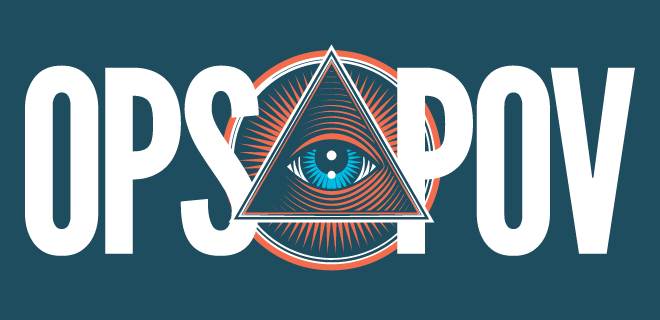
AppLovin has always proven a resourceful tool for mobile app publishers looking to grow their apps and revenue.
But now, they’re beefing up their wares by partnering with The Trade Desk so that TTD can buy directly from AppLovin Exchange, and mobile pubs will have access to UID 2.0.
Agencies and advertisers who make use of ALX through TTD are entitled to a cost and scale advantage through “direct access to all app publisher advertising inventory.” As well, this integration makes AppLovin the first mobile in-app exchange to assist in enabling Unified ID 2.0 signals for participating mobile publishers.
This partnership promises to make buying and targeting in-app way easier.
So what does the future of mobile programmatic look like for buyers and sellers alike? We chatted with Meagan Martino, Head of Demand, EMEA and Americas, AppLovin to learn more.
Yakira Young: How will AppLovin’s new partnership with The Trade Desk directly benefit agencies and advertisers?
Meagan Martino: AppLovin’s integration with The Trade Desk brings The Trade Desk’s agencies and advertisers access to AppLovin Exchange (ALX) – the leading in-app RTB exchange and largest mediation player in the mobile ecosystem.
Specifically, agencies and advertisers will be able to seamlessly unlock access to more than 1.8 billion devices across 140,000 mobile apps by adding ALX to campaigns within The Trade Desk, giving them an incredible scale advantage through a direct line to the world’s top mobile app developers.
YY: What sets this integration apart from other leading adtech platforms?
MM: Beyond the direct access and unmatched scale ALX offers to advertisers and agencies, the exciting thing about our partnership with The Trade Desk is that AppLovin has also become the first mobile in-app ad exchange to help enable Unified ID 2.0 signals for participating mobile publishers.
At AppLovin, we realize the need for identity solutions in the market and want to be able to enable the passing of these signals. Through our support of Unified ID 2.0, we’re demonstrating our prioritization of identity solutions to enable scale with the goal of enhancing targeting capabilities for advertisers.
Outside of what sets this integration apart from other adtech platforms in the market, it’s also a unique integration altogether for AppLovin, itself. Currently, AppLovin is integrated with over 120 DSPs, the majority of which are in the mobile performance realm where their customers are primarily mobile app developers. The Trade Desk, however, is a leader in the omnichannel DSP space, representing brands and agencies that have very different goals and needs than that of mobile developers.
For many brands and agencies, mobile remains a relatively untapped market for their campaign initiatives since they’ve long struggled to make the channel work as part of a holistic buying strategy. Over the past decade, AppLovin has been focused on solving for this through growing the entire mobile app ecosystem, and, today, as the mobile landscape has evolved, it’s made it more seamless than ever for brands and agencies to incorporate mobile into their omnichannel strategy in smart and strategic ways.
Now, our goal through this integration with The Trade Desk and ALX as a whole is to help advertisers and agencies take advantage of our scale while giving them the measurement, transparency, and quality they need to be successful in their campaigns.
YY: With all of the privacy changes taking place across the ecosystem, what should mobile app publishers be doing?
MM: As the first mobile in-app exchange to help enable Unified ID 2.0 signals for participating mobile app publishers, ALX’s integration with The Trade Desk lets publishers know they are connected to a platform that recognizes the importance of universal identity solutions as a way to unlock and diversify new sources of mobile demand.
With the user privacy changes introduced by Google and Apple, there is an acute opportunity to explore, test, and scale privacy-safe initiatives that deliver high-quality direct engagement with consumers who are opting into relevant advertising. Mobile app publishers that are supported in this consumer value exchange will be at an advantage in this new privacy-safe era.
YY: Where do you see the future of programmatic bid requests and mobile advertising?
MM: Mobile advertising is booming and we only see that increasing. A couple of my favorite statistics to point to are that people are spending more time than ever – one-third of their daily waking hours in fact – on mobile, and 69 percent of all programmatic bid requests are occurring on mobile devices. These figures show that the future of advertising is on mobile.
In-app advertising offers brands incremental access to high-quality users in premium ad environments. In the past, one of the most challenging things for advertisers and agencies has been navigating an often fragmented and complicated mobile landscape.
AppLovin’s launch of ALX serves as a massive consolidation of monetizable mobile inventory and represents the majority of the mediation for the mobile ecosystem. As the mediation partner, we enable a unified auction that gives DSPs like The Trade Desk fair access to compete in every impression opportunity directly sourced from the app. We are the strongest buying path to scale in mobile and against this growing opportunity.
YY: When will agencies and advertisers be able to access ALX on The Trade Desk?
MM: The teams are actively working on the integration now, and we anticipate The Trade Desk will be fully launched on ALX within the next month. Our work surrounding Unified ID 2.0 will be ongoing.
